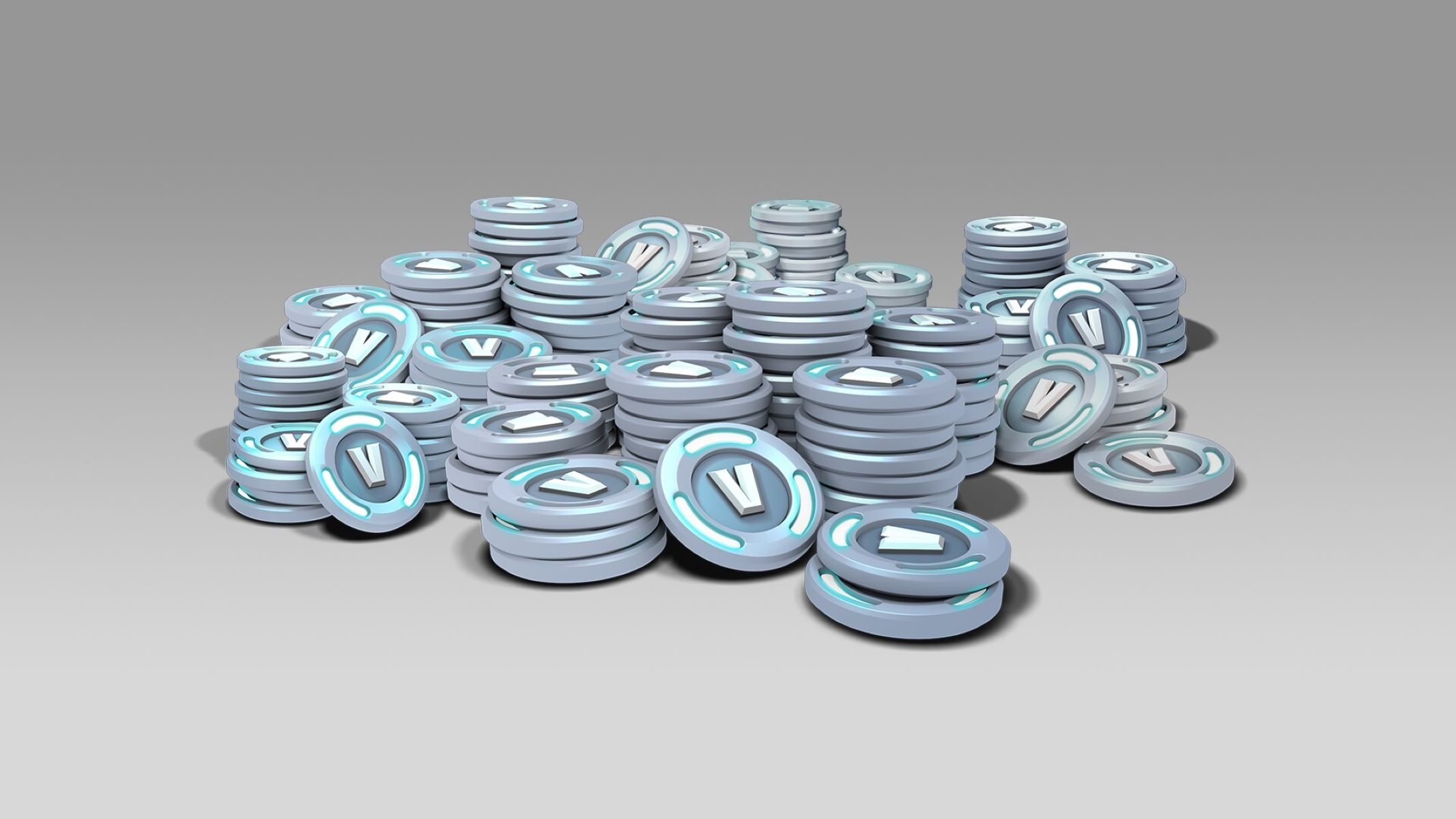Home>Entertainment>Is Gen Z Humor Actually Funny Or Just Overrated?


Entertainment
Is Gen Z Humor Actually Funny Or Just Overrated?
Published: January 21, 2024
Discover the truth about Gen Z humor and decide for yourself if it's truly entertaining or just hyped up. Explore the latest trends in entertainment and pop culture.
(Many of the links in this article redirect to a specific reviewed product. Your purchase of these products through affiliate links helps to generate commission for Regretless.com, at no extra cost. Learn more)
Table of Contents
Introduction
Gen Z, the generation born between the mid-1990s and early 2010s, has been making waves in the world of humor. Their unique brand of comedy, often characterized by its quick wit, self-deprecation, and irreverent take on societal norms, has permeated social media platforms, pop culture, and everyday conversations. As a result, it has sparked a debate: Is Gen Z humor genuinely funny, or is it simply overrated?
To answer this question, it's crucial to delve into the intricacies of Gen Z humor and understand its roots, influences, and impact. This generation's humor is more than just a collection of jokes and memes; it reflects their experiences, values, and the digital landscape in which they've come of age. By exploring the evolution of humor, analyzing popular Gen Z memes, and assessing the broader societal implications, we can gain a comprehensive understanding of the phenomenon that is Gen Z humor.
Understanding Gen Z humor
Gen Z humor is a fascinating and complex aspect of contemporary culture. It is characterized by its adaptability, irreverence, and keen awareness of the digital landscape. Unlike previous generations, Gen Z has grown up in a world dominated by social media, instant communication, and a constant influx of information. This unique environment has significantly influenced their comedic sensibilities.
One of the defining features of Gen Z humor is its ability to navigate sensitive topics with a blend of irony and self-deprecation. This generation has a penchant for addressing serious issues through humor, often using sarcasm and satire to highlight societal absurdities. This approach reflects their desire to challenge traditional norms and push boundaries, all while maintaining a sense of lightheartedness.
Moreover, Gen Z humor thrives on relatability and inclusivity. Memes and jokes often revolve around shared experiences, anxieties, and everyday struggles, creating a sense of communal understanding and solidarity among peers. This inclusive nature of their humor fosters a strong sense of community and belonging, especially in the digital realm where connections are forged through shared laughter.
Another notable aspect of Gen Z humor is its rapid evolution and adaptability. With the ever-changing landscape of social media and internet culture, trends and memes emerge and fade at a dizzying pace. Gen Z's ability to quickly latch onto new comedic formats and create their own unique content demonstrates their agility and creativity in navigating the digital sphere.
Furthermore, Gen Z humor is deeply intertwined with internet memes, which serve as a visual and textual language for expressing humor and cultural commentary. Memes often draw inspiration from popular culture, current events, and relatable scenarios, providing a platform for Gen Z to engage in social and political discourse through a comedic lens.
In essence, understanding Gen Z humor requires an appreciation for its nuanced blend of irreverence, relatability, and adaptability. It reflects the generation's ability to navigate the complexities of the digital age while using humor as a tool for self-expression, social commentary, and building connections within their community. This unique comedic landscape has undoubtedly left an indelible mark on the cultural zeitgeist, shaping the way we perceive and engage with humor in the modern era.
The evolution of humor
Humor has always been a fundamental aspect of human interaction, evolving alongside societal changes, cultural shifts, and technological advancements. From ancient civilizations to modern-day digital platforms, the nature of humor has continuously transformed, reflecting the zeitgeist of each era.
The evolution of humor can be traced back to early human history, where oral storytelling and communal gatherings served as the primary stage for comedic expression. In these settings, humor often revolved around relatable anecdotes, exaggerated characters, and playful exaggerations of everyday life. As societies progressed, humor became a means of social critique, allowing individuals to address societal norms and power structures through satire and wit.
With the advent of print media and the proliferation of comedic literature, humor took on new forms, reaching wider audiences and providing a platform for dissent and social commentary. Satirical publications and comedic plays became powerful tools for challenging authority and sparking conversations about pressing issues. The evolution of humor was closely intertwined with the democratization of information, allowing diverse voices to contribute to the comedic landscape.
The 20th century witnessed a seismic shift in the evolution of humor, propelled by the rise of mass media, television, and stand-up comedy. Comedians became cultural icons, using their platforms to dissect societal taboos, political absurdities, and human idiosyncrasies. As technology advanced, the internet emerged as a transformative force in shaping the comedic landscape, enabling the rapid dissemination of memes, viral videos, and online communities.
In the contemporary digital age, the evolution of humor has reached unprecedented heights, with Gen Z at the forefront of this cultural phenomenon. The digital realm has become a breeding ground for innovative comedic formats, allowing for the rapid creation and dissemination of memes, challenges, and viral trends. Gen Z's humor reflects a keen understanding of internet culture, blending irony, absurdity, and relatability to create a comedic language that resonates with their peers.
The evolution of humor continues to be shaped by technological innovations, societal dynamics, and the ever-changing nature of human interaction. As we navigate the complexities of the digital era, it is evident that humor will remain a dynamic and essential aspect of our shared human experience, constantly adapting to reflect the zeitgeist of each generation.
Analyzing popular Gen Z memes
Popular Gen Z memes offer a fascinating window into the collective humor and cultural commentary of this generation. Memes, often in the form of images, videos, or text accompanied by humorous captions, serve as a vehicle for expressing shared experiences, societal observations, and playful absurdities. Analyzing these memes provides valuable insights into the comedic sensibilities and social dynamics of Gen Z.
One prevalent theme in Gen Z memes is the celebration of absurdity and chaos. Memes often playfully exaggerate everyday situations, embracing the inherent unpredictability and humor found in life's quirks and mishaps. This lighthearted approach to chaos reflects Gen Z's willingness to find humor in the unpredictability of modern existence, offering a refreshing perspective that resonates with their peers.
Moreover, Gen Z memes frequently incorporate self-deprecating humor and irony as a means of coping with societal pressures and personal insecurities. By poking fun at themselves and embracing vulnerability, Gen Z utilizes memes as a form of catharsis, fostering a sense of camaraderie and empathy within their community. This introspective and empathetic approach to humor underscores the generation's capacity for self-awareness and emotional intelligence.
Additionally, memes serve as a platform for Gen Z to engage in social and political discourse through a comedic lens. Issues ranging from environmental activism to mental health awareness are addressed with a blend of wit and sincerity, reflecting the generation's commitment to using humor as a tool for advocacy and awareness. Memes have become a powerful medium for initiating conversations about pressing societal issues, transcending traditional barriers and sparking meaningful dialogue.
Furthermore, Gen Z memes often exhibit a keen awareness of pop culture, incorporating references to movies, music, and iconic moments that resonate with their peers. This intertextuality not only showcases the generation's deep immersion in popular culture but also serves as a means of forging connections and shared experiences within their community.
In essence, the analysis of popular Gen Z memes reveals a multifaceted comedic landscape that mirrors the generation's resilience, empathy, and cultural fluency. These memes transcend mere entertainment, offering a glimpse into the collective consciousness of Gen Z and the nuanced ways in which they navigate the complexities of modern life through humor and creativity.
The impact of Gen Z humor on society
The impact of Gen Z humor on society transcends mere entertainment, permeating various facets of contemporary culture and shaping the way we perceive humor, communication, and social dynamics. Gen Z's unique brand of comedy has left an indelible mark on society, influencing everything from marketing strategies to societal discourse and interpersonal interactions.
One of the most notable impacts of Gen Z humor is its role in redefining marketing and advertising approaches. Brands have increasingly recognized the power of memes, viral challenges, and relatable humor in capturing the attention of younger audiences. By leveraging Gen Z's comedic sensibilities, companies have adapted their marketing strategies to resonate with the generation's values, authenticity, and penchant for humor-infused content. This shift has not only transformed the advertising landscape but has also fostered a more authentic and engaging relationship between brands and consumers.
Moreover, Gen Z humor has played a pivotal role in reshaping societal conversations and driving awareness around important issues. Memes and comedic commentary have become vehicles for initiating discussions about mental health, social justice, and environmental activism. Through humor, Gen Z has been able to dismantle stigmas, raise awareness, and mobilize communities to address pressing societal challenges. This unique approach to advocacy has broadened the scope of public discourse, making complex issues more accessible and engaging for a wider audience.
Furthermore, the impact of Gen Z humor on societal dynamics is evident in the way it has influenced communication patterns and interpersonal relationships. The generation's adeptness at using humor as a means of self-expression and connection has redefined the way individuals interact in both physical and digital spaces. Humor has become a universal language for forging connections, diffusing tensions, and fostering a sense of community, transcending cultural and geographical boundaries.
In essence, the impact of Gen Z humor on society is multifaceted and far-reaching. It has reshaped marketing strategies, amplified societal discourse, and redefined the dynamics of interpersonal communication. As Gen Z continues to wield its comedic influence, it is poised to further shape the cultural landscape, leaving a lasting imprint on the way we engage with humor and navigate the complexities of the modern world.
Conclusion
In conclusion, the debate surrounding Gen Z humor's authenticity and impact is a nuanced and multifaceted discourse. Through a comprehensive exploration of Gen Z humor, its evolution, popular memes, and societal implications, it becomes evident that Gen Z's comedic sensibilities are far from overrated. Instead, they represent a significant cultural shift that has redefined the landscape of humor and its influence on contemporary society.
Gen Z humor's adaptability, irreverence, and keen awareness of the digital landscape set it apart as a unique form of comedic expression. The generation's ability to navigate sensitive topics with a blend of irony and self-deprecation reflects a sophisticated understanding of societal complexities. Furthermore, the inclusive and relatable nature of their humor fosters a strong sense of community and belonging, transcending geographical boundaries and cultural differences.
The evolution of humor, from oral storytelling to digital memes, has been a testament to the ever-changing nature of comedic expression. Gen Z's role in this evolution is particularly noteworthy, as their adeptness at navigating the digital realm has propelled humor to new heights of creativity and adaptability. The impact of Gen Z humor extends beyond entertainment, influencing marketing strategies, societal discourse, and interpersonal interactions.
Analyzing popular Gen Z memes offers valuable insights into the generation's resilience, empathy, and cultural fluency. These memes serve as a mirror to the collective consciousness of Gen Z, reflecting their capacity for social critique, advocacy, and shared cultural experiences. Gen Z's humor has transcended traditional barriers, initiating meaningful conversations about pressing societal issues and reshaping the dynamics of communication and community building.
Furthermore, the impact of Gen Z humor on society has been profound, reshaping marketing strategies, amplifying societal discourse, and redefining interpersonal relationships. The generation's ability to use humor as a tool for advocacy and awareness has broadened the scope of public discourse, making complex issues more accessible and engaging for a wider audience.
In essence, Gen Z humor represents a cultural phenomenon that has left an indelible mark on the way we perceive and engage with humor in the modern era. Its impact on society, coupled with its ability to foster community, initiate meaningful conversations, and shape the cultural landscape, underscores the genuine and significant nature of Gen Z humor. As society continues to evolve, Gen Z's comedic influence is poised to further shape the way we engage with humor and navigate the complexities of the modern world.













